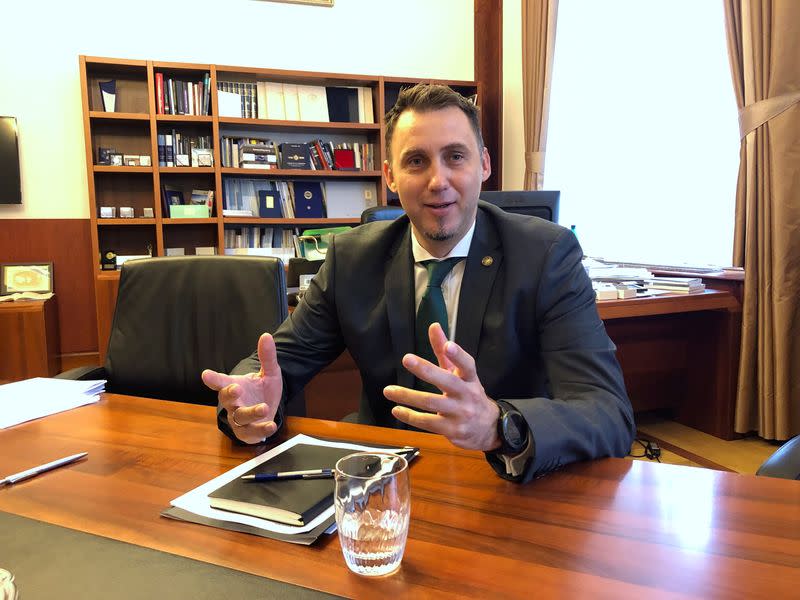Hungary central banker flags likely pause in rate cuts after forint falls

By Gergely Szakacs and Krisztina Than
BUDAPEST (Reuters) - Hungarian central bank Deputy Governor Barnabas Virag flagged a likely pause in the bank's interest rate cuts on Thursday after an escalation of the conflict in the Middle East and a shift in the U.S. rate outlook pushed the forint to 18-month-lows.
Falls in the forint forced the bank into emergency rate hikes in late 2022 to shore up the currency, which Goldman Sachs economists have described as the "binding constraint" on the pace of further rate cuts due to its high volatility.
Central Europe's worst-performing currency with a loss of more than 4% versus the euro this year plumbed weaker levels last week than at any point since the NBH started cutting rates from the European Union's highest level in May 2023.
"The developments which have unfolded since the end of September justify that in this environment the scope for decisions has definitely shifted towards pausing the rate cut cycle," Virag told Reuters in an interview.
"On the one hand, the intensity of geopolitical conflicts has increased. On the other hand, expectations for the Fed's interest rate path have shifted higher, which has hit risk appetite in emerging markets."
At 0905 GMT, the forint traded at the psychological 400 mark versus the euro, slightly off from its session lows as well as 18-month-lows hit last week. The bank's next policy meeting is due on Oct. 22.
Although data published earlier on Thursday showed Hungarian inflation hitting the central bank's 3% target in September, Virag said there were reasons for caution.
"The increase in commodity prices and the deterioration in emerging market risk appetite are factors which have an influence on the inflation path," he said. "The central bank assigns these developments a key role in its decisions."
Inflation scaled the EU's highest levels of more than 25% in the first quarter of last year.
Asked whether the bank can make any policy commitment for the remainder of the year, Virag said: "the scope for decisions has definitely narrowed."
"To what extent it has narrowed, we can only tell when we see how lasting the recent shifts in the geopolitical space and the changes in expectations regarding the Fed's interest rate path are and how they affect emerging market sentiment."
(Additional reporting by Anita Komuves; Writing by Gergely Szakacs; Editing by William Maclean)